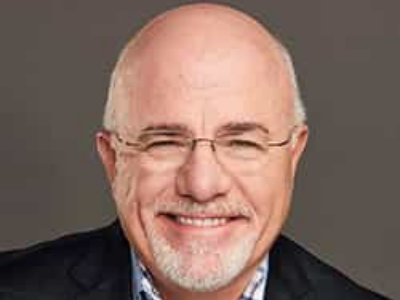Largest US Lutheran denomination to install Yehiel Curry as its first Black presiding bishop
News > Religion News

Audio By Carbonatix
6:54 AM on Saturday, October 4
By TIFFANY STANLEY
The Evangelical Lutheran Church in America is installing the Rev. Yehiel Curry as its first Black presiding bishop Saturday, a landmark moment for the predominantly white denomination.
“It hasn’t really hit me yet,” Curry told The Associated Press a week before his installation. “The fact that you’re a first.”
Curry succeeds the Rev. Elizabeth Eaton, who served for 12 years and was the first woman to lead the ELCA.
During Eaton’s tenure, Curry watched as the ELCA conference of bishops went from majority men to majority women.
“I think her presence mattered,” he said. “And I’m hopeful that if presence matters that we will start to see more and more leaders of color.”
A formal ceremony at Central Lutheran Church in Minneapolis kicks off Curry’s six-year term, which began Oct. 1. He was elected at the ELCA Churchwide Assembly on July 30 in Phoenix.
American Lutheranism is often stereotyped by its Scandinavian and German roots and concentration in the upper Midwest. By some measures, the ELCA is more than 95% white. But it has invested in local congregations of color and multicultural ministries, while maintaining ties to growing Lutheran churches globally.
“He is representing a very white denomination as a Black man from the United States. I think it’s a daunting, daunting call,” said the Rev. Leila Ortiz, a friend who recently finished a term as ELCA bishop of the Metropolitan Washington, D.C., Synod. “I trust him, and I trust God and I can’t wait to watch.”
As leader of the largest American Lutheran Church body, Curry will face challenges common to other mainline Protestant denominations, which in recent years have weathered theological disputes over LGBTQ+ inclusion and precipitous membership declines. The ELCA has dropped from 5.3 million members in 1988 to 2.7 million members today.
Since 2009, the ELCA has blessed same-sex marriages and welcomed LGBTQ+ clergy, elevating its first openly gay regional bishop in 2013 and its first openly transgender regional bishop in 2021.
Curry, 53, is only the fifth presiding bishop of the ELCA, which formed from a merger of denominations in 1988. Until his election, he was one of 65 synodal, or regional, bishops. He led the Metropolitan Chicago Synod, where the ELCA’s headquarters is also located.
Born the seventh of 11 children on the south side of Chicago, Curry grew up Catholic and attended Catholic schools through college. He was a social worker before becoming a public schoolteacher.
When he and his wife first visited Shekinah Chapel, they were in their mid-twenties, and it was a fledging congregation in Chicago. “I never paid attention that it was in a Lutheran Church.”
The church had a mentoring program for young Black men and boys that he thought could serve some of his middle school students.
“For me, it was the traditional Black worship experience except it was a little bit more contemporary,” he said. “There was poetry, there was liturgical dance, there was a band and praise and worship.”
Shekinah Chapel grew from an ELCA program to an official congregation. Curry went from a lay leader to a more formal leadership role while going to seminary. He was ordained within the ELCA in 2009.
“That’s uncommon where you get to lead in a place where you’ve been raised,” Curry said. “I now recognize how fortunate I am.”
He was part of the Theological Education for Emerging Ministries (TEEM) program, which the ELCA says prepares ministers in “ethnic-specific, multicultural, rural and inner-city settings.”
His path to ministry highlights one way of growing new and diverse congregations within older church structures.
Curry’s forerunners as African American Lutheran leaders include the Rev. Nelson Wesley Trout, the first Black ELCA synod bishop, and the Rev. Will Herzfeld, a Black presiding bishop for a predecessor ELCA denomination.
“Blacks have been around the Lutheran Church since it presented itself in New Amsterdam in the 1600s. We have been present in some small way from the beginning,” said the Rev. James Thomas, a retired ELCA seminary professor and author of “A Rumor of Black Lutherans.”
Around the globe, the largest and fastest-growing Lutheran churches are in Africa.
A benefit of Curry’s leadership is that it can help elevate “the fact that African Americans have been contributing to Lutheranism for a very long time, and not just here in the United States but around the world and in Africa,” said the Rev. Yolanda Denson-Byers, who wrote “See Me, Believe Me,” a book on the challenges leaders of color face in the mainly white ELCA.
Bishop Regina Hassanally of the ELCA Southeastern Minnesota Synod said Curry’s elevation is a dual call — for him and the denomination.
“There can be a temptation to think that calling a leader of color is enough,” she said. “But the reality is that it means creating supports and infrastructure and actually allowing that person to lead out of all of their gifts and their full identity, not just one piece of their identity.”
Curry said his goals include exploring ways for the ELCA to be a more connected church, from local congregations up through the hierarchy. Along with being a welcoming and thriving church, it’s one of the goals the denomination has already set.
“Sometimes you come up with these unique statements and strategies, but then we move on as transition happens,” he said. “I want to take something that we’ve affirmed already and maybe dig a little deeper.”
___
Associated Press religion coverage receives support through the AP’s collaboration with The Conversation US, with funding from Lilly Endowment Inc. The AP is solely responsible for this content.









